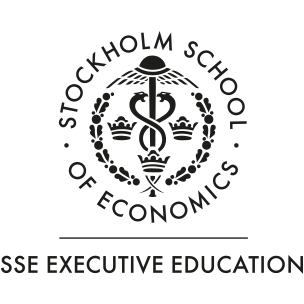Five keys to personal leadership
Many people become managers by being highly skilled in a specific area, not necessarily because of their leadership skills. What many of us overlook is that successful leadership is not just about getting people to do things. It’s about getting people to want to do things, on their own account. So says Katharina Arenvi, program director of SSE Executive Education’s open program “Leadership through personal development.”
At first glance, Katharina Arenvi has a somewhat unusual background. A graduate in business administration from the Stockholm School of Economics with several years of business experience, she also brings a Master’s degree in gestalt therapy to the table. In addition to heading the program in leadership and development, Arenvi is a writer and an in-demand leadership consultant.
 “If, like most successful individuals in business, you’re quick and smart and can understand abstract concepts, this is usually an advantage. But what we sometimes overlook is that our brain, this amazing creation, does not present us with reality but only a model of it. This is something we need to understand, and it requires patience and the ability to understand different perspectives. You need something else besides this constant drive to always move forward – as a leader, you need to have the ability to stop for a moment and get others on board,” says Arenvi.
“If, like most successful individuals in business, you’re quick and smart and can understand abstract concepts, this is usually an advantage. But what we sometimes overlook is that our brain, this amazing creation, does not present us with reality but only a model of it. This is something we need to understand, and it requires patience and the ability to understand different perspectives. You need something else besides this constant drive to always move forward – as a leader, you need to have the ability to stop for a moment and get others on board,” says Arenvi.
In Arenvi’s view, it’s important to stay humble in the face of other people’s perspectives, which can differ from one’s own, and learn to see others in the organization as the people they actually are. And to inspire others through one’s own behavior.
Below are her five most important keys for sustainable and successful leadership, one that also embraces personality at its core.
- Executive presence – Meet the pace and challenges of everyday leadership with presence, focus, clarity and creativity grounded in personal values.
- The power of confidence – As a leader, I am not the one who is performing. My role is to achieve results through the actions of others. So, unleash the power of the group, with confidence as your foundation, and achieve meaningful interactions that provide the best results for everyone.
- The importance of relationships – To serve as a leader in an organization, you’ve got to understand interpersonal relationships, and doing this requires understanding yourself. The courage to be personal as a leader and take responsibility for job relationships directly impacts business development and results.
- Strategic perspective – Stop for a moment, connect the dots, look at the big picture, set the direction and dare to act long-term.
- The paradox of change – Don’t chase the future. Success and job satisfaction begin here and now.


